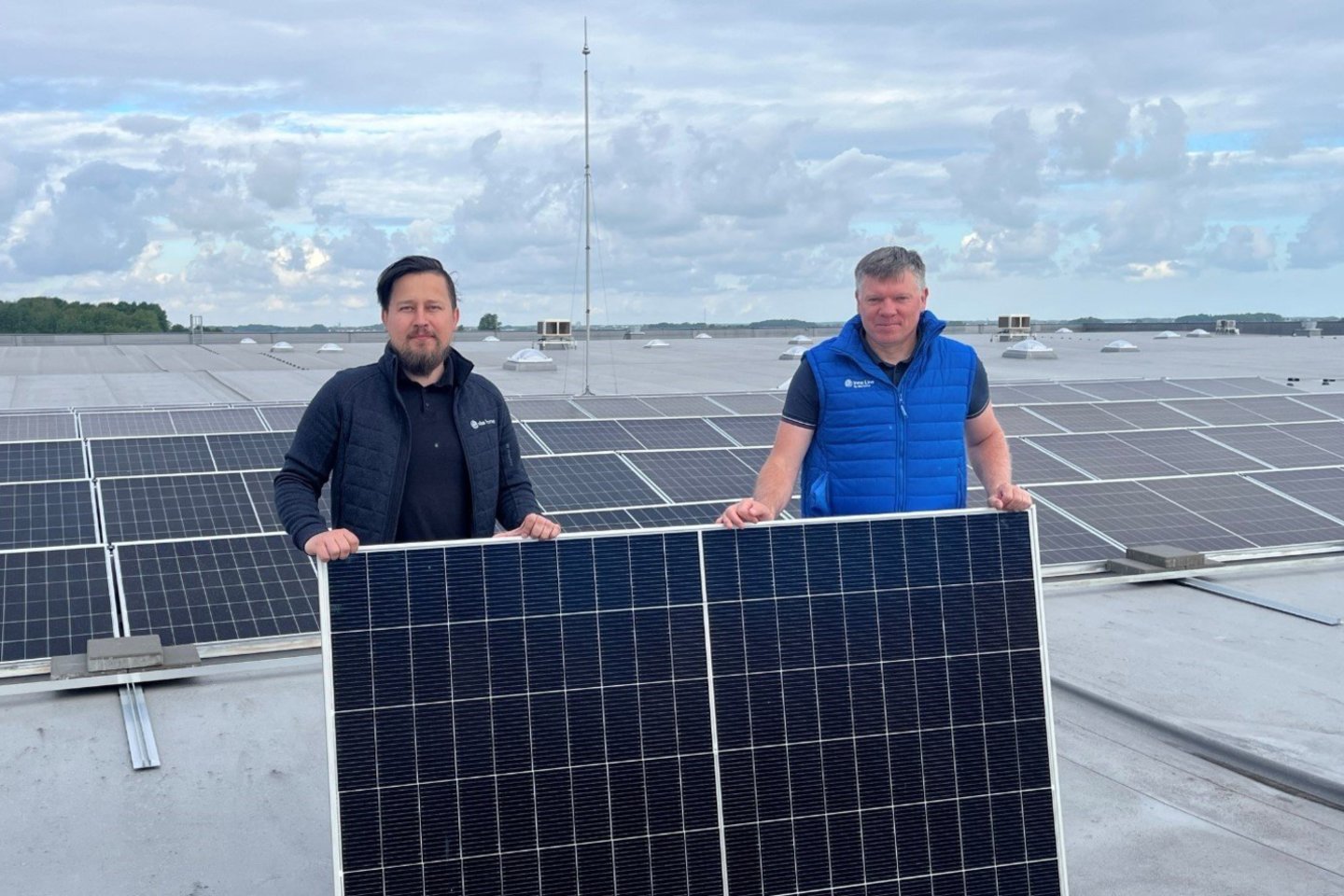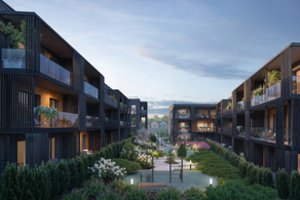Ramūnas Marozas, Head of the company: ‘One fundamental principle that guides us in our operations is to minimise environmental impact. For this reason, we have used exclusively green energy from renewable sources throughout the SBA Group for more than five years. This year, we are transitioning to a generating consumer, which means a stronger focus on sustainability and an opportunity to control our energy costs, especially during price fluctuations. We expect that the solar plant will meet 24% of Inno Line's annual energy demand and should pay for itself in 5 years’.
According to Marozas, the overall investment in the power plant amounts to EUR 1.4 million. The power plant's size is equivalent to the area of approximately two Kaunas Darius and Girėnas stadiums. The state provides partial reimbursement. The solar cells will cover about half of the roof of the Inno Line building, allowing for future expansion if demand increases.
Rimvydas Karoblis, Head of Via Solis Energia: ‘We undertook the largest rooftop solar project in the Baltics with an understanding of the challenges ahead, both in terms of supplying materials and equipment, as well as logistics. Installing almost 7,300 panels on a 30,000 sqm area also requires special expertise from the team. We are planning to complete this project within a couple of months. Testing the system and connecting it to the electricity grid will take about the same time. The installation work is proceeding smoothly, and we expect to complete the project on time’.
Susiję straipsniai
The solar power plant on the roof of Inno Line is scheduled to be fully operational in September. According to Mr Marozas, in its first year of operation, it should generate about 3.1 GWh of electricity. It is estimated to release around 1 111.5 tonnes of CO2 into the atmosphere. This is equivalent to two plane rides around the Earth or the emissions of almost 250 vehicles per year.
This is not the first solar power plant on the roofs of SBA companies. A 1 MW power plant has been operating on the roof of Klaipėdos Baldai for five years. It meets about 8% of the company's annual energy demand.


